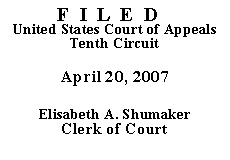

| VINCENT D. FRANCO, JR., |
|
| v. | |
| REGENTS OF THE UNIVERSITY OF COLORADO, a body corporate, |
The unchallenged jury instruction on the elements of Mr. Franco's discrimination claim required him to establish (1) that he was disabled, (2) that he "was qualified to be and to remain a student at the University of Colorado School of Medicine, with or without reasonable accommodation," (3) that he was dismissed from the school solely because of his disability, and (4) that the school receives federal financial assistance (and is thus governed by the Rehabilitation Act). Aplt. App. at 135. His argument on appeal relates to Jury Instruction 9, which addresses the second of these elements. It stated:
For purposes of determining whether Mr. Franco was "qualified to be and to remain a student at the University of Colorado School of Medicine, with or without reasonable accommodation," you are instructed as follows. Mr. Franco was "qualified" to be and remain a student if he met the school's academic and technical requirements, based on his performance when assisted by those specific accommodations he either actually requested or that the University provided to him. You should not speculate as to whether there were other accommodations that could have been made.
Aplt. App. at 136. Mr. Franco complains of the final two sentences of this instruction. He contends that these sentences inappropriately direct the jury to ignore accommodations for Mr. Franco that the school might have been obligated to provide on its own initiative. That is, he argues that the instruction "precluded the jury from considering the failure of the School of Medicine to take any action to proactively work with Mr. Franco to allow him to succeed in medical school." Aplt. Br. at 12.
We are skeptical about the merits of the challenge. In particular, the final sentence is clearly unobjectionable, because jury findings may not rest on speculation. See Truck Ins. Exch. v. MagneTek, Inc., 360 F.3d 1206, 1216 (10th Cir. 2004). Indeed, Jury Instruction 2, to which no objection was raised, instructed the jury: "Any finding of fact you make must be based on probabilities, not possibilities. Facts may not be based on surmise, speculation or conjecture." Aplt. App. at 130.
In any event, we need not address the merits of Instruction 9 because any error in that instruction did not harm Mr. Franco. The instruction, by its own terms, related to only one element of Mr. Franco's cause of action: "whether Mr. Franco was 'qualified to be and to remain a student at the University of Colorado School of Medicine, with or without reasonable accommodation.'" Aplt. App. at 136 (quoting Instruction 8, id. at 135). Yet the jury found in his favor on that element. Question 2 on the Verdict Form asked the jury: "Has Vincent D. Franco, Jr. proven by a preponderance of the evidence that he was qualified to be and to remain a student at the University of Colorado School of Medicine, with or without reasonable accommodation?" Aplee. Supp. App. at 37. The jury answered "Yes." Id. Perhaps a different instruction, one preferred by Mr. Franco, would have made it easier for him to establish that he was qualified. But the bottom line is that he convinced the jury that he was.
The element on which Mr. Franco failed to persuade the jury was the third element: that the school dismissed him "solely because of his disability." Id. He contends that an error in Instruction 9 nevertheless harmed his case because the jury was instructed that it "must consider all instructions as a whole," Aplt. Reply Br. at 5, and Instruction 9 therefore "affect[ed] the jury's ability to consider evidence about whether he was dismissed from school solely based on his disability," id. at 6. But this contention assumes that the jury selectively read Instruction 9, focusing on the portion that Mr. Franco challenges while wholly ignoring that the instruction governs, by its own terms, only the question of Mr. Franco's qualification. We reject this assumption. "Juries are presumed to follow the court's instructions." Questar Pipeline Co. v. Grynberg, 201 F.3d 1277, 1287 (10th Cir. 2000).
We AFFIRM the judgment below.
ENTERED FOR THE COURT
Harris L Hartz
Circuit Judge
*.This order and judgment is not binding precedent except under the doctrines of law of the case, res judicata, and collateral estoppel. It may be cited, however, for its persuasive value consistent with Fed. R. App. P. 32.1 and 10th Cir. R. 32.1.